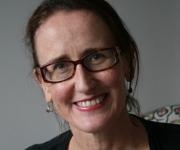A YOUNG woman recently described to me medical examinations she experienced in childhood — lying legs apart on a metal table as medical students watched a senior colleague insert a finger into her prepubescent vagina.
Bonnie was subjected to these attentions because she has complete androgen insensitivity syndrome — an intersex condition that sees a chromosomally male embryo follow a female developmental path due to an inability to “read” testosterone.
As she put it herself, when you have a condition like that “everybody wants to rubberneck”.
When I spoke to Bonnie as part of a research project, I thought it unlikely you would to see such disregard for a patient’s rights these days.
But a new study based on interviews with medical students from three universities in the United Kingdom and Australia has made me wonder.
Despite the universities having clear policies that valid consent must be obtained before students participated in or observed intimate examinations, senior clinicians were still instructing students to go ahead without such consent, the researchers found.
Perhaps it’s not surprising — given the often intimidating nature of medical hierarchies — that most students (82%) who faced such a dilemma reported following orders despite their concerns about lack of consent.
“I didn’t have the confidence to turn around and say ‘no’ to the surgeon,” one student told the interviewers.
A fourth-year student described feeling “absolutely terrible” as she joined a queue of medical students doing a rectal examination on a patient under a spinal block who had not even been told the examinations were happening, let alone asked for his consent.
A few brave students did buck the trend. One third-year student announced he was going for a cup of coffee when he realised a teenage patient did not want him there during a gynaecological examination.
“I thought it was best … in that situation where she was clearly uncomfortable and the doctor obviously wasn’t going to take ‘no’ for an answer.”
Policies on such issues are all very well, but they obviously have little impact unless the senior clinicians who set the culture of a workplace commit to them.
And, hard as it is, we somehow need to find a way to empower students and junior doctors to say “no” to senior colleagues when they feel uncomfortable about something they have been asked to do, particularly when it is wrong.
Jane McCredie is a Sydney-based science and medicine writer, and author of Making girls and boys: inside the science of sex, published by UNSW Press next month.
Posted 31 January 2011

 more_vert
more_vert
I have had surgery to correct my problem “aesthetically” but I cannot have normal sex. Whenever I meet a new man, all sexual activity is done with the lights out. I am 48 years old and still am afraid to let a man see me “down there” and I’ve been married three times. Your discussions have helped me a lot. Thank you. Bonnie S. Goldman Centerville/Huntington, New York